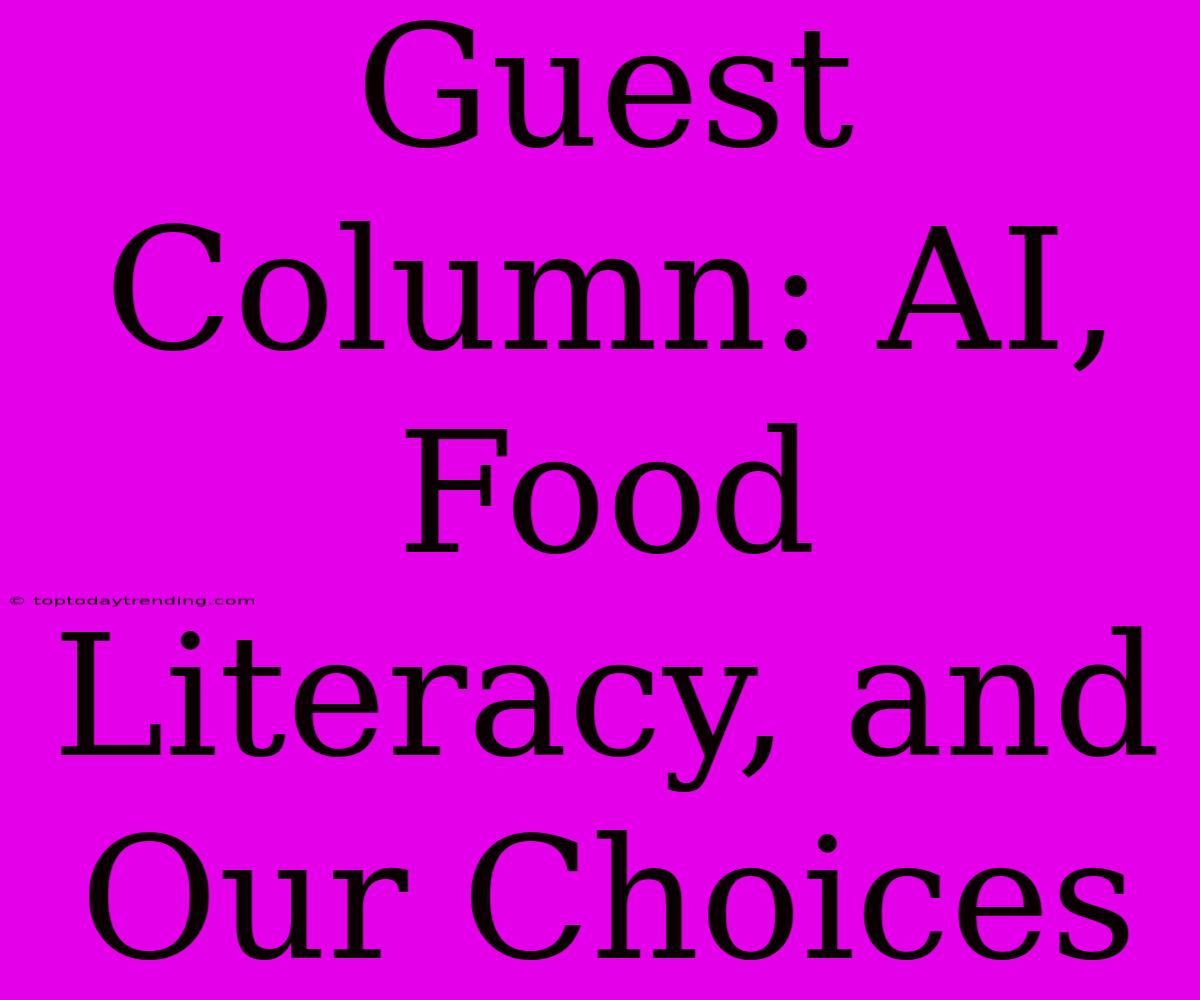Guest Column: AI, Food Literacy, and Our Choices
The way we eat is changing. Technology, particularly artificial intelligence (AI), is playing an increasingly significant role in shaping our food choices. While AI offers potential for positive change, it's crucial to consider its impact on food literacy and how we navigate this evolving landscape.
AI's Role in Food
AI is already transforming the food industry in various ways:
- Personalized Nutrition Plans: AI-powered apps can analyze dietary needs and preferences, creating customized meal plans. This can be beneficial for individuals with specific health conditions or those seeking to improve their nutrition.
- Precision Agriculture: AI algorithms help optimize crop yields by analyzing soil conditions, weather patterns, and other factors. This can lead to more sustainable farming practices and reduced food waste.
- Food Safety Monitoring: AI can detect potential foodborne illnesses and contaminants in food production facilities, ensuring the safety of our food supply.
- Recipe Development and Food Discovery: AI-powered platforms can suggest recipes based on user preferences, dietary restrictions, and available ingredients, expanding culinary horizons.
The Challenge of Food Literacy
Despite these advancements, there are concerns about the impact of AI on food literacy:
- Over-reliance on Algorithms: Relying solely on AI-generated recommendations can lead to a disconnect from real-world food knowledge and understanding of how our food is produced.
- Limited Understanding of Food Systems: AI algorithms can sometimes be limited by their datasets, neglecting the complex social, economic, and environmental factors that influence food production and consumption.
- Potential for Bias and Misinformation: AI models are susceptible to bias, potentially perpetuating inequalities in access to healthy and sustainable food.
Navigating the Future of Food
We must strike a balance between embracing AI's potential and maintaining food literacy. Here's how:
1. Cultivate Critical Thinking: Be skeptical of AI-generated recommendations. Research food sources, understand the processes behind your food choices, and critically evaluate information. 2. Embrace Hands-on Learning: Participate in cooking classes, visit farms, and engage with local food systems to gain firsthand experience and knowledge. 3. Support Sustainable Practices: Choose food produced locally and ethically, minimizing environmental impact and supporting fair labor practices. 4. Advocate for Food Literacy Education: Encourage schools and communities to prioritize food literacy programs that promote healthy eating habits and understanding of food systems.
By fostering a culture of food literacy, we can ensure that AI serves as a tool to empower us, not replace our understanding and appreciation for food. We must approach this evolving landscape with a critical eye and an unwavering commitment to informed and sustainable food choices.

